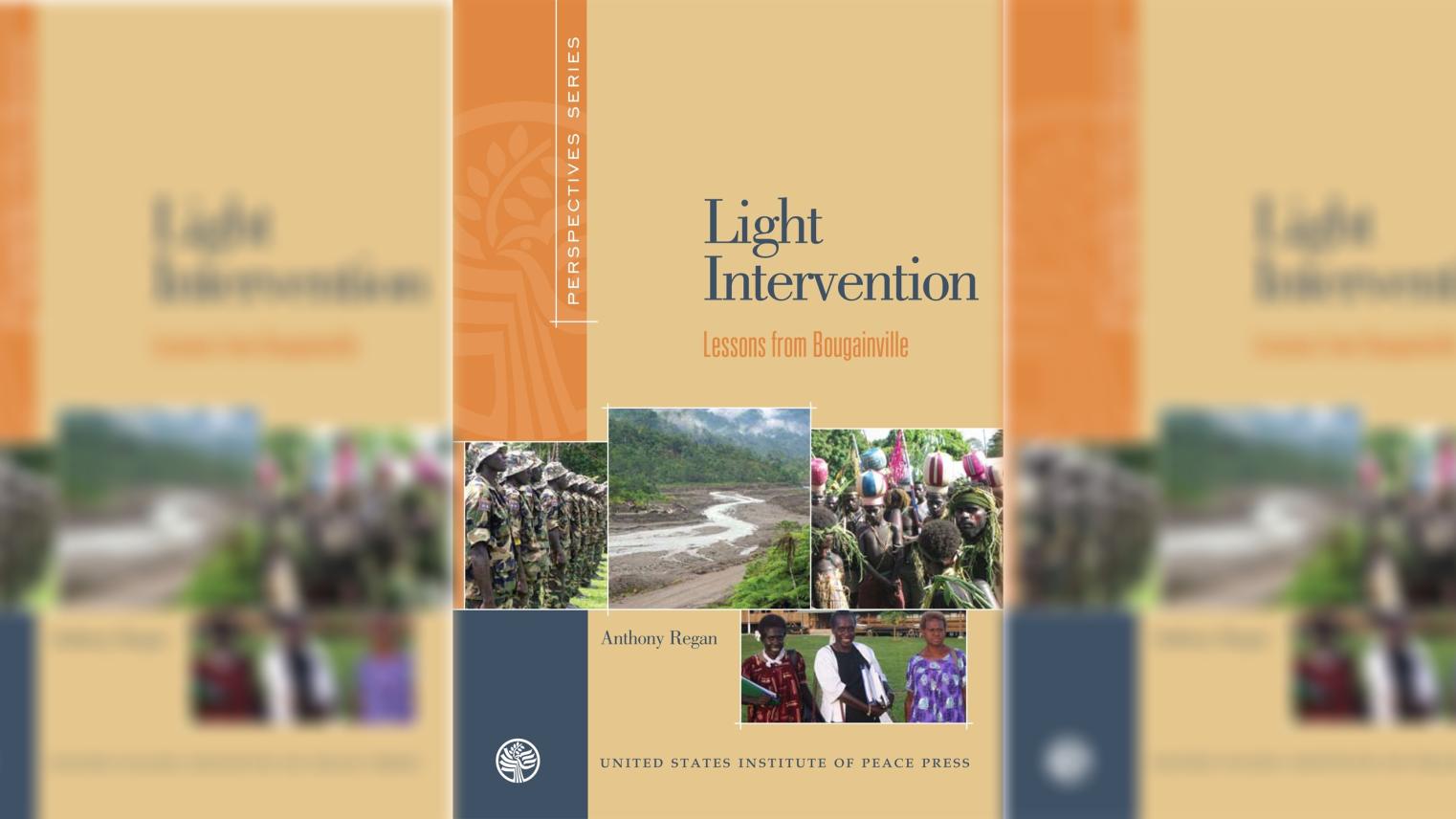Light Intervention: Lessons from Bougainville

This volume analyzes the remarkably successful Bougainville peace process, which ended an apparently intractable, violent, and deeply divisive separatist conflict that for much of the period from 1988 to 1997 destabilized both Papua New Guinea and the wider Pacific islands region. International intervention in Bougainville achieved the much-desired light footprint, marked by less activist international involvement and a high degree of control by parties to the process. Anthony Regan contends that the success of this process makes it an important case for examining the advantages and ideal conditions for a light international intervention.
Regan outlines the origins, features, and impacts of the conflict; examines the key dynamics of the peace process that enabled local actors to initiate and largely control it; and focuses on why a light intervention was possible in this case. He also assesses the limitations of this approach. In particular he provides twenty-five lessons highlighting the dynamics contributing to the outcomes in Bougainville and insights and points of reference for those planning interventions in other contexts.